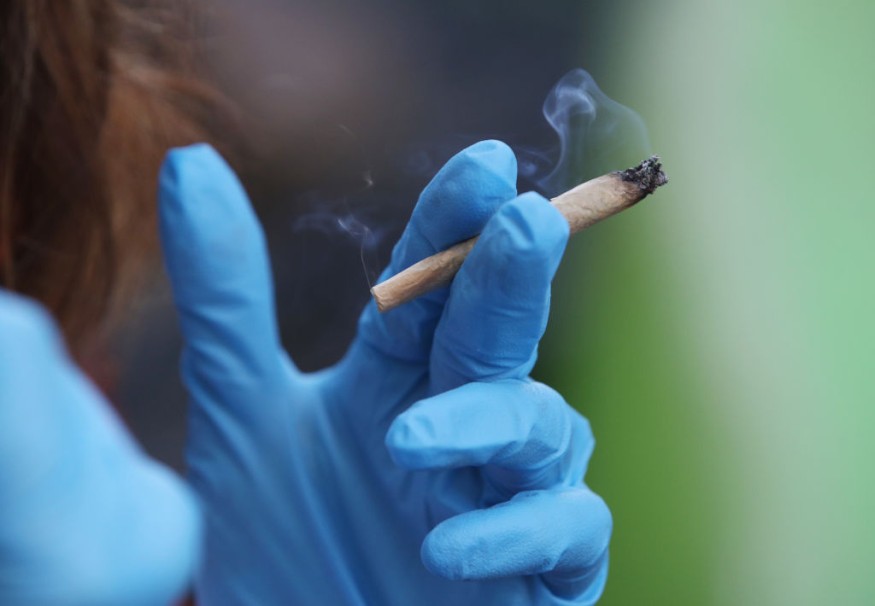Oregon Becomes First State to Decriminalize All 'Illegal' Drugs as Measure 110 Kicks In

A ballot measure that decriminalized the possession of small amounts of illegal drugs in Oregon took effect on Monday.
Oregon becomes the country's first state to decriminalize the possession and personal use of illegal drugs like heroin, cocaine, and methamphetamine after the passage of Measure 110 by more than 58 percent of the vote last November.
Measure 110 reclassifies possession of small amounts of illegal drugs from a misdemeanor to a civil violation with a $100 fine or participating in a health assessment.
Instead of arresting and putting people in jail for illegal drugs, the law offers aid to those who need it. It will also shift more than $100 million a year of marijuana tax revenue to support addiction recovery.
According to a U.S. News report, the measure was a ballot initiative funded by the Drug Policy Alliance, a nonprofit advocacy group supported in part by Facebook's Mark Zuckerberg.
Possession of heroin, cocaine, methamphetamine, and other drugs for personal use is no longer a criminal offense in Oregon. But selling these illegal drugs or possessing them in large amounts is still against the law that could result in a misdemeanor charge. Marijuana remains fully legal in Oregon since the state legalized it in 2014.
Meanwhile, advocates said the shift in decriminalizing illegal drugs is life-changing for thousands of Oregonians. Kassandra Frederique, the Drug Policy Alliance's executive director, said "one of the things people misunderstand" is how criminalization creates blockages for getting treatment. The Drug Policy Alliance is a nonprofit dedicated to legalizing illicit drug use.
"If we want people to make different choices, we have to give them more options... ending criminalization will do leaps and bounds around ending shame, which automatically opens people up for other opportunities," Frederique said in a USA Today report.
Others, including lawmakers, are hopeful this could be the first step when it comes to progressive measures, adding that drug criminalization disproportionately imprisoned people of color across the United States.
Rep. Bonnie Watson Coleman said she hoped that everyone will become more enlightened now that substance abuse is not something that needs imprisonment.
"If you're white and wealthy, you get an opportunity to get a break, go home to your family and go into some kind of health care environment. But it's often different for people of color," Watson Coleman said in the report.
Watson Coleman further noted that it is far more expensive to pay to imprison someone than get them treatment. She added that rehab programs not only empower people but also save communities money.
Decriminalization of Illegal Drugs in Oregon
Proponents of Measure 110 see the idea as a chance to prioritize drug treatment over police enforcement based on successful decriminalization models imposed in Portugal and Switzerland, according to a Rolling Stone report.
As per the Drug Policy Alliance, new treatment services, including 15 addiction recovery centers, will be opened by Oct. 1. It will be funded with excess marijuana tax revenue, which earns over $45 million now and could expand to $129 million by 2027.
Oregon's state will fund these services with the money it is expected to save by no longer arresting, imprisoning, and prosecuting people for illegal drug possession.
Measure 110 also seeks to change some police behaviors too. Chris Parosa, a prosecutor for the Lane County District Attorney's Office, said that before, they could establish probable cause for a possible felony if an officer saw a pipe in a car. But now, if they see a pipe in a car, it will be just a violation and will not give law enforcement grounds to search a vehicle.
Related story : Oregon Becomes First State to Decriminalize Hard Drugs
Subscribe to Latin Post!
Sign up for our free newsletter for the Latest coverage!
© 2026 Latin Post. All rights reserved. Do not reproduce without permission.














